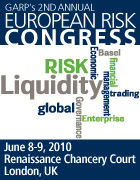On Tuesday (July 28) the Commodity Futures Trading Commission (CFTC) announced the agency is considering setting limits on speculative trading on energy futures.
Topping out at $147/barrel, 2008 saw record oil prices, and many blame speculators for the spikes. Consumers and businesses suffered when prices for gasoline soared to above $4/gallon. Now, it seems, the blame-game has a new head of steam. Testifying before the CFTC, Representative Bart Stupak (MI) said, “The crises in the oil and financial sectors have shown us what happens when speculators control our markets. Less than a year ago, the CFTC was denying excessive speculation was contributing to high energy costs. Under new leadership, the Commission acknowledges it is a problem and is looking for ways to address it. This progress is good news for consumers, and I remain committed to working with the CFTC and the Obama Administration to create a strong regulatory system that protects American consumers.”

Stupak notes that although prices have come down, speculation is still driving the cost of oil. According to his testimony, domestic oil supplies are at a 20-year high while oil demand is at a ten-year low, yet oil is still trading at $70/bbl. “Gas prices, home heating oil, natural gas and other energy prices should be based on supply and demand,” Stupak said. “Not speculation by price manipulators.”
It appears with a new Administration in the White House the CFTC is changing its tune. Under the Bush administration the agency “found that fundamental supply and demand factors provide the best explanation for the recent crude oil price increases.” With Obama at the helm, however, the tremendous price swings will be blamed on Wall Street (the report is due next month).
What about this 180 degree turn? In a statement, Bart Chilton, Commissioner of the CFTC, admitted, “Quite candidly, last year the agency did not perform its due diligence function with as much zeal as it should have, and I am pleased to see that we’re finally on the right road.”

Much of the debate revolves around the closure of the so-called “Enron Loophole,” an exemption granted by the CFTC to Enron’s now defunct online trading platform, Enron Online. Even though Enron Online is dead and gone, the exemption for the online trading platform lives on, most notably for the Intercontinental Exchange (ICE). NYMEX, for its part, is advocating for the same regulation of online exchanges by which physical floors are governed.
Not all agree closing this loophole is the answer. Blaming the Enron Loophole on sky-high oil prices is a red herring, says Platts’ John Kingston. Congressional attempts at closing it call for stricter regulation only on individual contracts serving “significant price discovery” functions on online platforms. “The biggest target right now is ICE's financial Henry Hub swap contract,” writes Kingston. “So far, it seems that will be the only one that will fit the definition of a ‘significant price discovery’ contract per a loose set of prerequisites (volume, arbitrage, whether the exempt contract can influence the NYMEX contract price, etc.) proposed by the CFTC and adopted in the government's language.” In other words, the finger-pointing here is merely a political scapegoat.
Among the speculator defenders is Jon Birger of Fortune, who argues speculators “cannot have a material impact on the price if they’re never taking physical delivery of the commodity.” Still, anti-speculation advocates are no lightweights. A broad coalition of businesses including airlines and storage and transportation companies are behind Stop Oil Speculation Now, a lobby aimed at reining in oil speculation in the markets.

“We are in the business, however, of ensuring that actions of market participants, individually or as a group, aren’t having unintended or uneconomic effects on our markets or on prices,” says Chilton. “A delicate balancing act? Yes, but that’s what we get paid for—that’s our job.” Whither energy speculation regulation? Stay tuned…
US Rep Stupak’s Statement on Energy Speculation






1 comments:
Does GARP have any comments?
Post a Comment